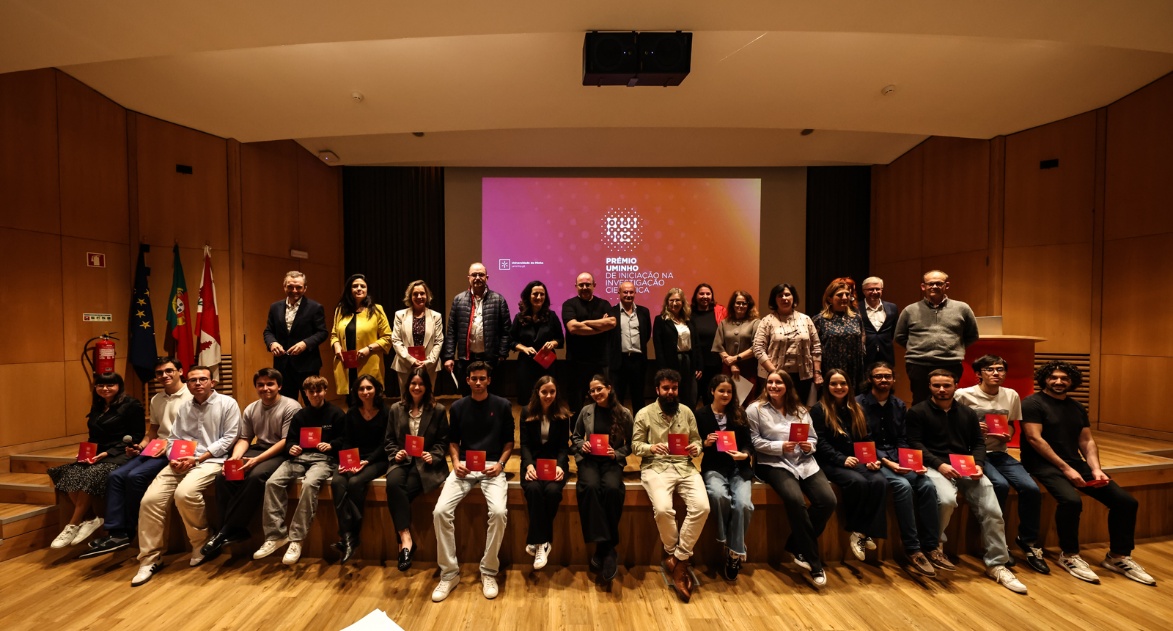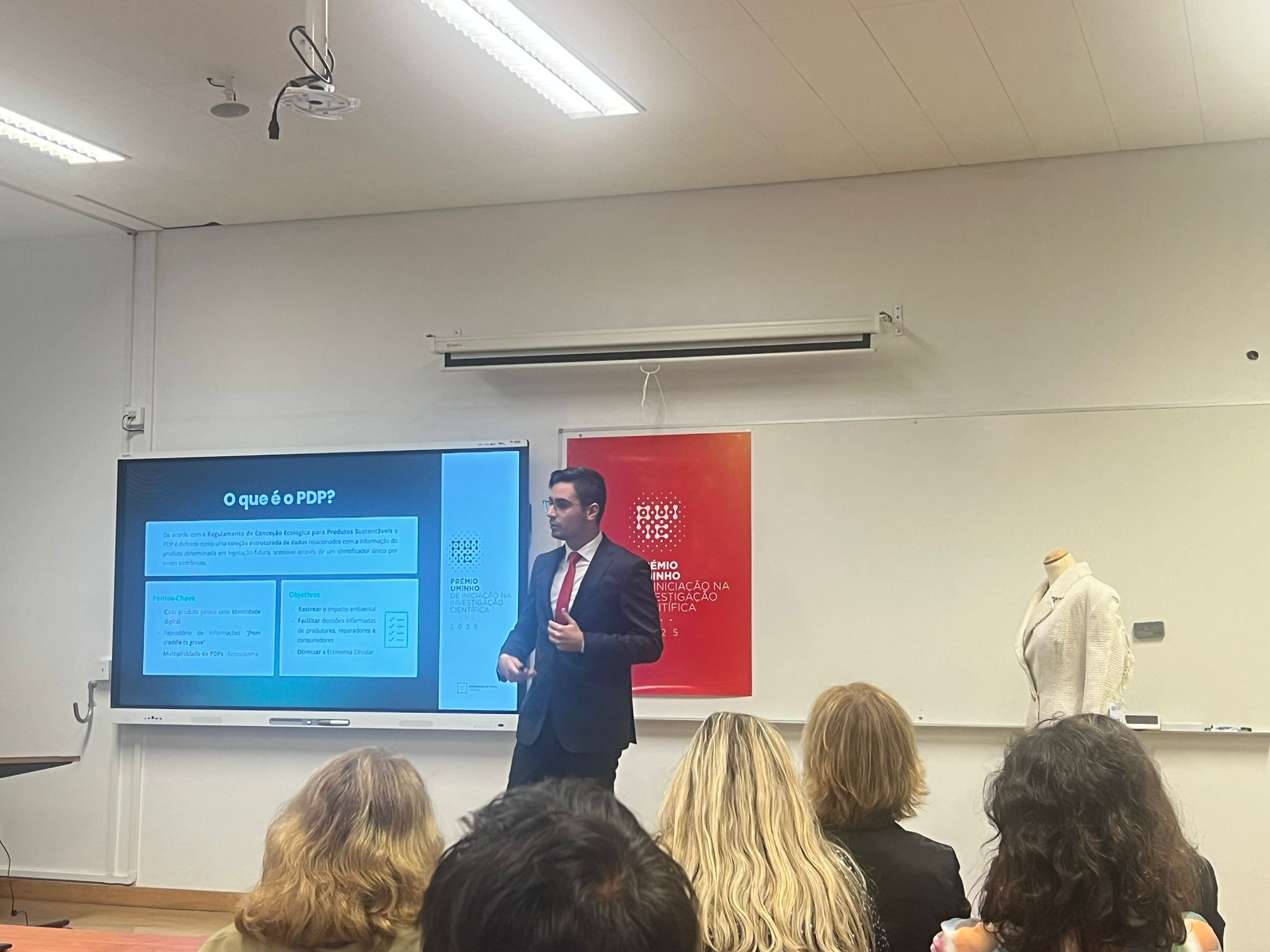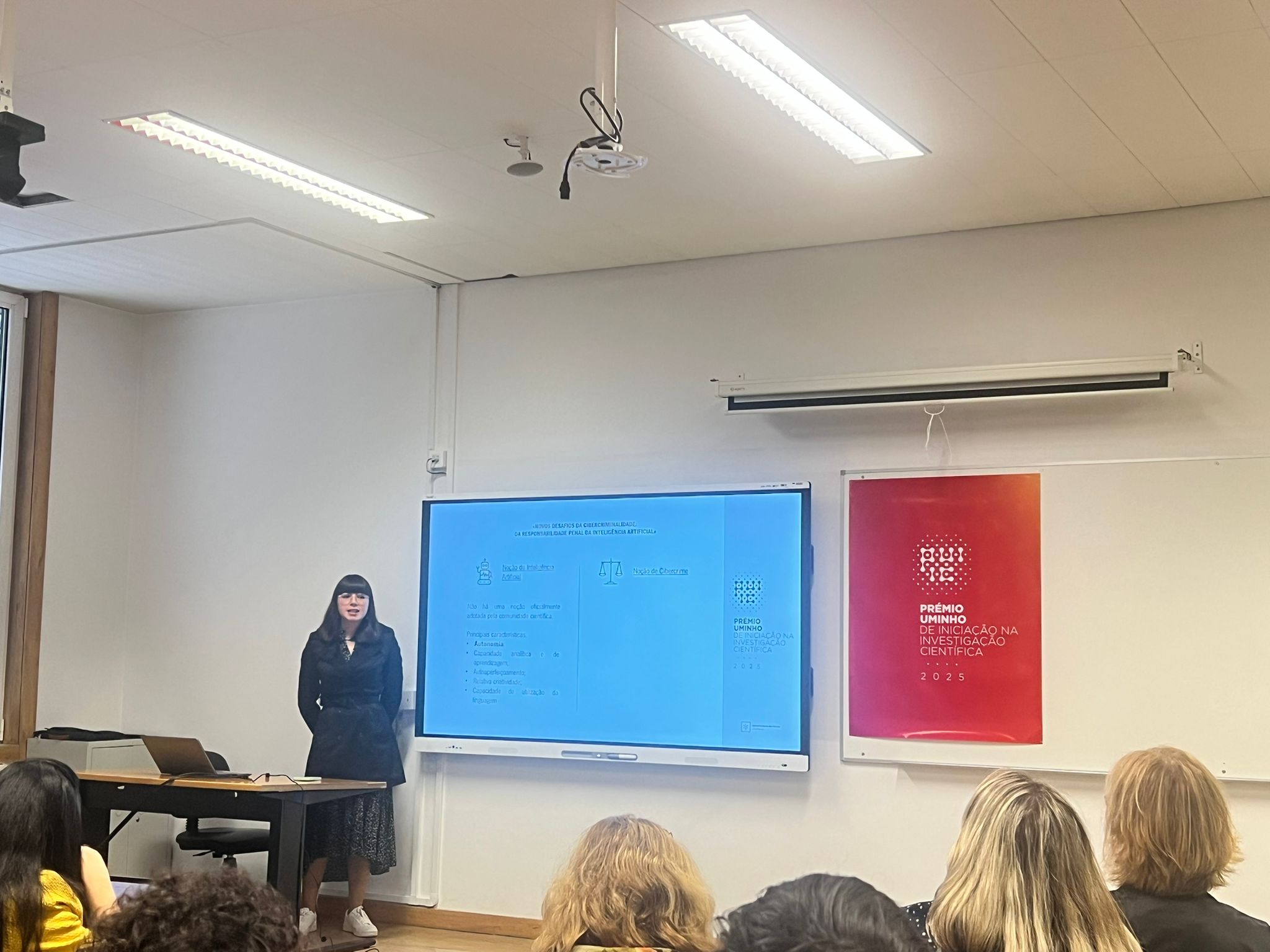The award ceremony for the UMinho Prize for Initiation in Scientific Research 2025 took place on October 24, bringing together students, supervisors, and researchers to celebrate the engagement of undergraduate students in the production of scientific knowledge at the University of Minho.
JusGov presented two projects: one exploring the issue of criminal liability in the context of Artificial Intelligence within the Portuguese legal system, considering possible attributions of responsibility i) to the machines themselves, whose automated operations may produce legal effects, ii) to users who employ them as tools for committing cybercrimes, and iii) to producers, programmers, and creators who endow them with origin, purpose, and development; and another project examining the concept of the Digital Product Passport, assessing the ecological impacts of its implementation alongside its legal and technological dilemmas, and analysing energy, technical, and regulatory measures capable of mitigating its environmental footprint and ensuring an effective contribution to the green transition and circular economy.
The first project, “New Challenges of Cybercrime: The Criminal Liability of Artificial Intelligence”, was developed and presented by Mariana Pereira, one of the winners this year, under the supervision of our researchers Mário Ferreira Monte, Pedro Jacob Morais, and Gabriela Antunes Araújo. The second, “How to Tackle the Ecological Footprint of the Digital Product Passport from a Legal and Technological Perspective?”, was developed and presented by Pedro Couto, under the supervision of our researcher Marta Santos Silva.
By guiding students through their introductory journey of inquiry, the involvement of the JusGov community highlights our Centre’s commitment to nurturing scientific research and intellectual rigour among those who are just embarking on their academic careers.
The award ceremony for the UMinho Prize for Initiation in Scientific Research 2025 took place on October 24, bringing together students, supervisors, and researchers to celebrate the engagement of undergraduate students in the production of scientific knowledge at the University of Minho.
JusGov presented two projects: one exploring the issue of criminal liability in the context of Artificial Intelligence within the Portuguese legal system, considering possible attributions of responsibility i) to the machines themselves, whose automated operations may produce legal effects, ii) to users who employ them as tools for committing cybercrimes, and iii) to producers, programmers, and creators who endow them with origin, purpose, and development; and another project examining the concept of the Digital Product Passport, assessing the ecological impacts of its implementation alongside its legal and technological dilemmas, and analysing energy, technical, and regulatory measures capable of mitigating its environmental footprint and ensuring an effective contribution to the green transition and circular economy.
The first project, “New Challenges of Cybercrime: The Criminal Liability of Artificial Intelligence”, was developed and presented by Mariana Pereira, one of the winners this year, under the supervision of our researchers Mário Ferreira Monte, Pedro Jacob Morais, and Gabriela Antunes Araújo. The second, “How to Tackle the Ecological Footprint of the Digital Product Passport from a Legal and Technological Perspective?”, was developed and presented by Pedro Couto, under the supervision of our researcher Marta Santos Silva.
By guiding students through their introductory journey of inquiry, the involvement of the JusGov community highlights our Centre’s commitment to nurturing scientific research and intellectual rigour among those who are just embarking on their academic careers.





